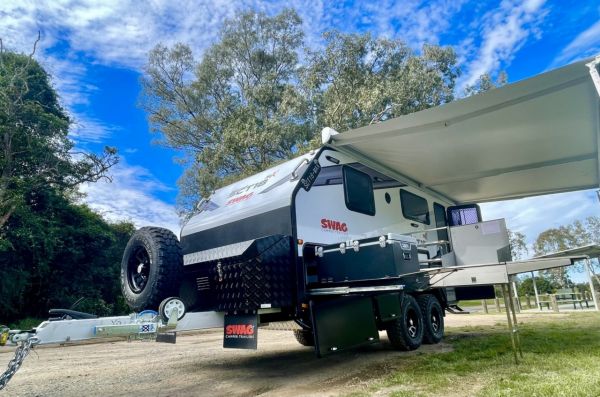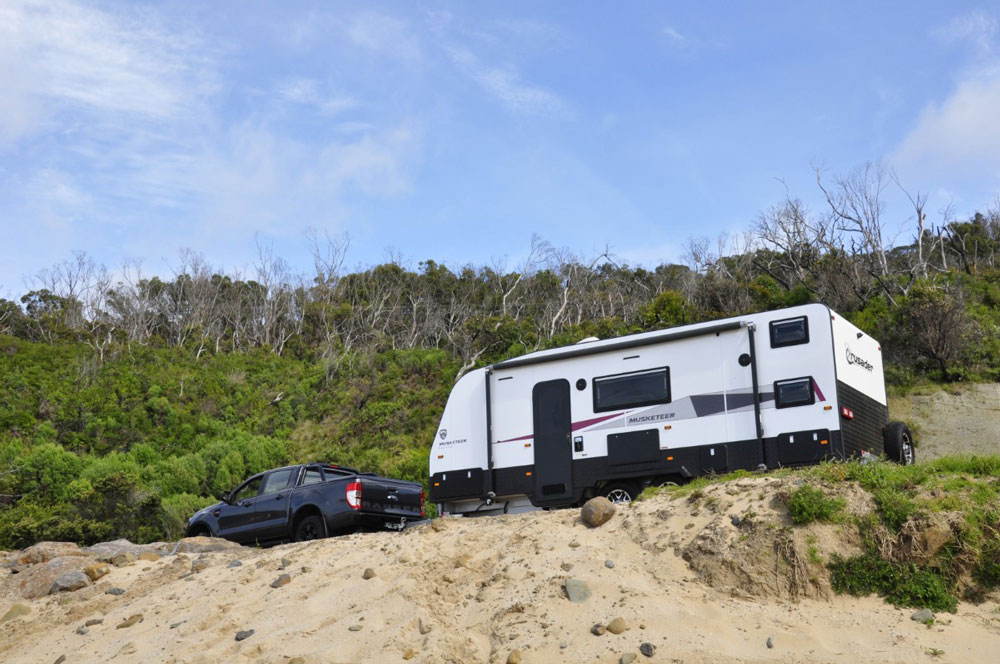
Caravanning Tips for Beginners
I was sitting on the balcony of my favourite watering hole yesterday, the beautiful Dromedary Hotel in central Tilba, NSW, watching a poor unfortunate with a 300 Series Landcruiser struggle through the quaint little historic town with his brand new 23’ caravan in tow, and making a meal of it!
An old saying came to mind, “All the gear and no idea!”
The lure of escape and wanderlust can often turn dreams into nightmares for those who dive into caravanning a bit too enthusiastically and bite off more than they can chew.
I have decades of caravanning behind me now, but I remember what it was like to be a newcomer to what is one of the absolute best ways to see this gorgeous country. I've put together this guide to share my experiences and some expert caravanning tips for beginners to make sure that your memories of those first journeys are unforgettable in the best of ways.
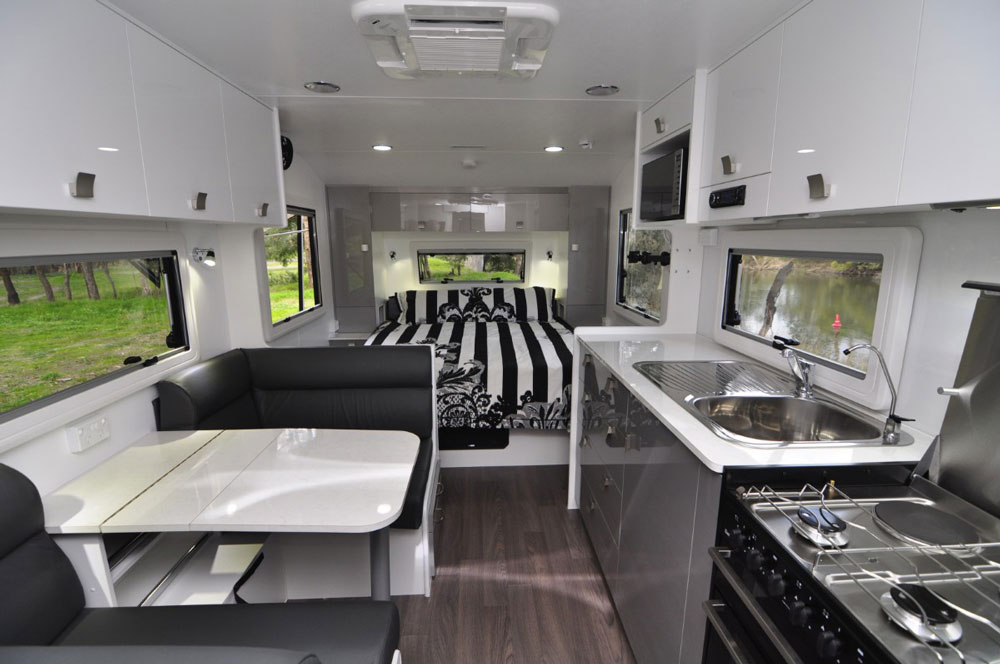
1. Buy the right size caravan.
We'll start with our poor friend in Tilba. Do you really need that massive caravan if it's just two of you travelling? The number of travellers is always a great starting point. Sort out how much space you will need and don't be tempted to buy the biggest caravan you can afford.
Next, look at your essentials. Yes, power and water are essentials, but do you really need to take the washing machine, the coffee maker, and every electrical knickknack known to mankind along with that monstrous TV and sound system? It's okay if the answer is yes, but remember that caravanning is also a great chance to get away from home. Focus on the lifestyle you'll want when you're on the road, and don't go overboard buying something with all the bells and whistles.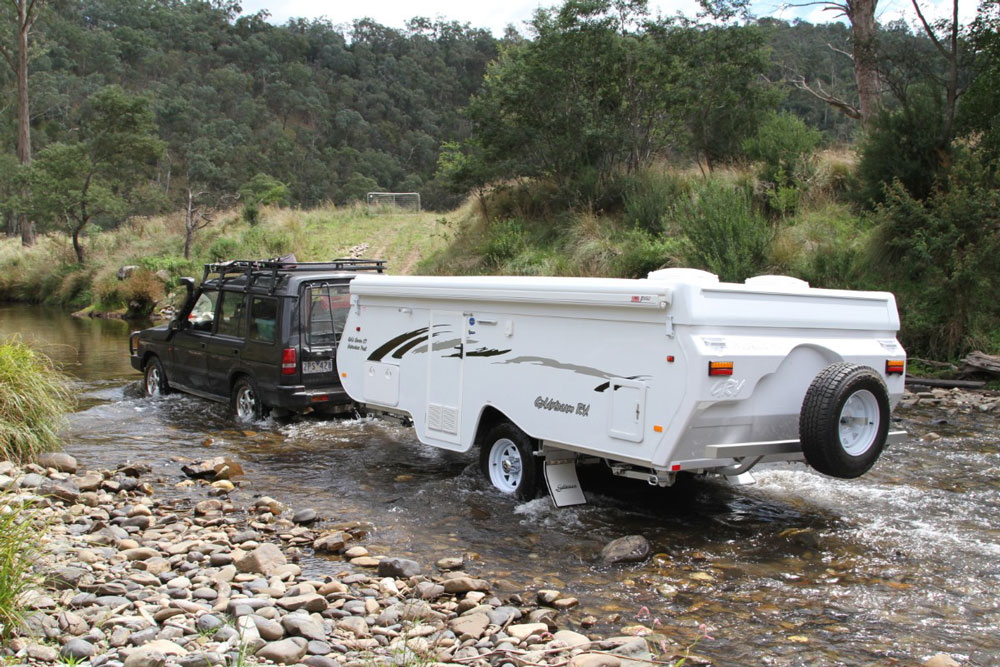
2. Pack carefully and watch your load.
Many people tow the biggest, heaviest camper possible behind vehicles that may struggle, especially in critical situations. Obviously, your entire rig needs to be fully roadworthy and within towing specifications and legality, and there is plenty of available information on that. However, I worry about those stretching the limits of weight and size by maximising their weights, not minimising for added safety.
Many caravans have very little payload. In fact, around 400kg seems to be an average. But remember that by the time you fit that extra battery and bike racks, perhaps spare jerry cans and recovery equipment, fill the fridge and the water tanks; then the food, clothes, sporting accessories and external furniture that 400kg doesn’t go far and you are literally bursting at your rigs maximum capacities.
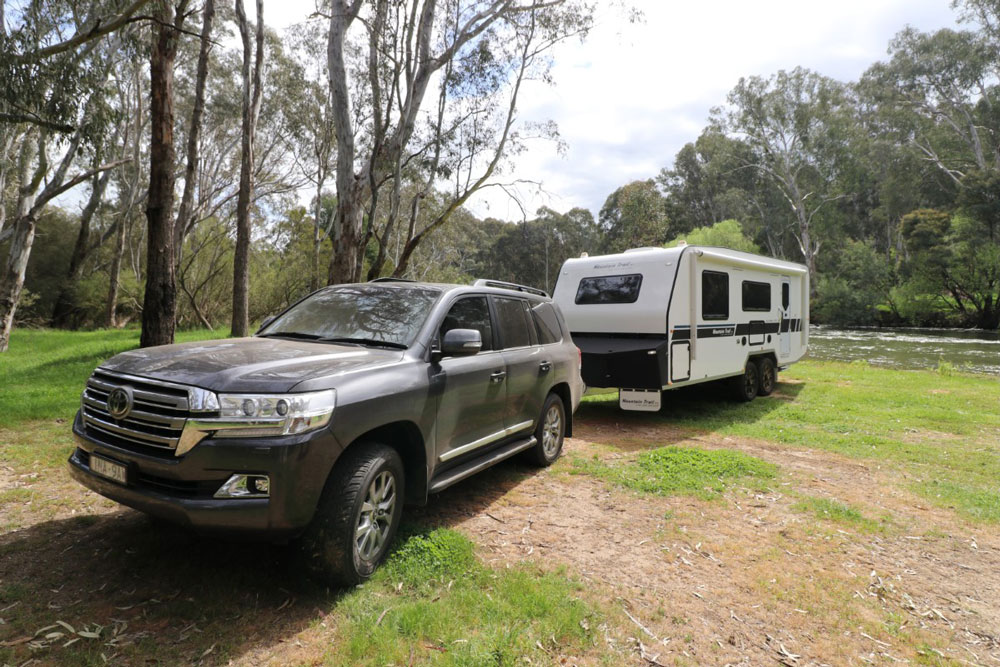
3. Keep in mind you'll need water for everything.
Everything! This includes drinking, cooking, and hygiene – and yes, drinking quality water often comes from a tap – not a damned plastic bottle! Modern caravans provide large water tank capacities but filling them for travel may see you with too much weight. If possible, check out the water availability and quality before you travel and have a think about the suitability of your utensils and containers - unbreakable items are certainly more suitable for camping, such as plastic plates and cans instead of glass bottles.
4. Bring a backup means of communication.
Mobile phones are good, but the service range differs considerably! Consider an EPIRB for emergencies or satellite communications with log-in and snail-trail functions. A good UHF radio with a long-range aerial is a great tool for communications on the road and added safety.
You also won't regret bringing backup GPS navigation. You may need a signal booster or other aerial to continue receiving GPS signals, especially if you rely on telephone and tablet apps.
And related to that, bring along a wi-fi booster. It'll come in handy for entertainment, communication and navigation.
5. Bring a bigger fire extinguisher.
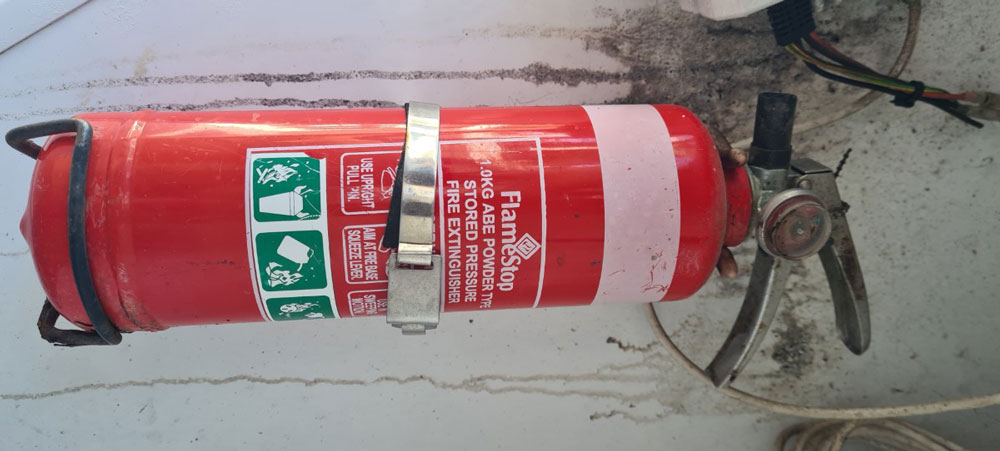
Don’t just get a little 1kg bottle! Whilst effective for small fires, they only discharge for a surprisingly short period depending on conditions, perhaps 6-12 seconds! Fires may be anything from an electrical fault, a cooking fat fire inside the van, or the start of a bush fire sparked from your campfire. Either way, bigger is better. Consider a 2.5kg unit or even a large 9kg extinguisher if you have easily accessible space, plus a separate smaller bottle for inside the van. Remember that you must be able to access them quickly!
6. Invest in good security locks.
Travellers seem to be targets for the dishonest. Lock it up and make it a good one! Ensure that the security door on the caravan is secure and your vehicles alarms are working correctly. Consider further alarms for inside the caravan itself. Ensure all components have strong locks, including gas bottles, bike racks, and all add-on items, plus all of the container storage, boots and tool boxes. Try to get padlocks that have maximum tensile strength and limited shank length to reduce breakage from angle grinders and bolt cutters.
7. Don't forget your recovery gear!
You just never know when the ground will engulf you or others on route. Be sure to bring a recovery pack including suitable snatch straps, gloves, and shackles at a minimum. Recovery boards and a shovel may just save the day!
Other essentials:
-
Tool Kit – you just never know when you need it!
-
Spare wheel/s and Tyre Changing Equipment – Don’t forget a couple of extra blocks to support the jack on soft ground
-
First Aid Kit -and know how to use it! The life you save may well be your own!
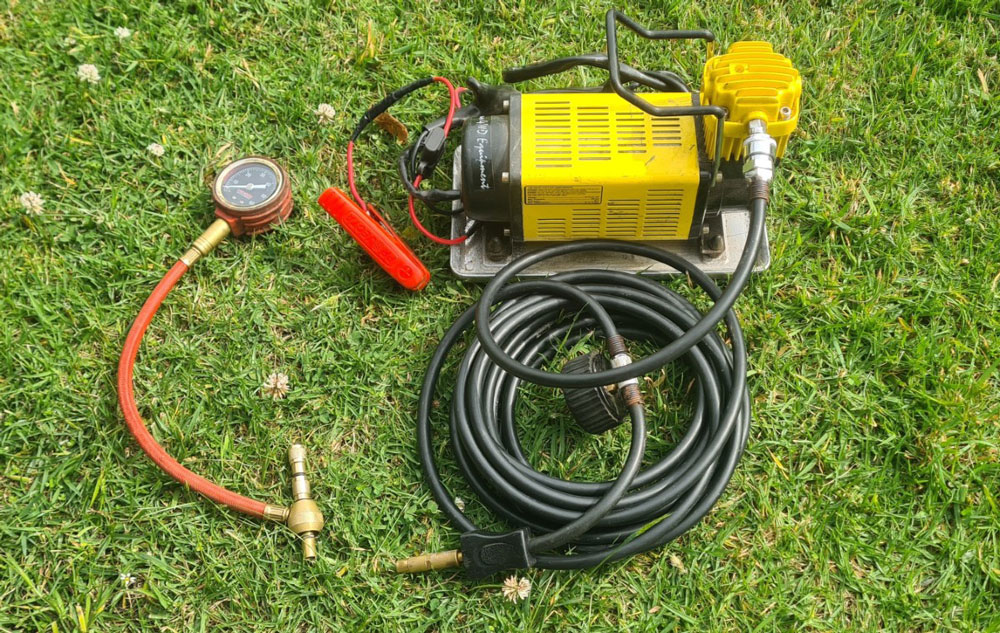
-
Portable Compressor. Essential equipment for both on and off-road.
-
Tyre Deflator Gauge Kit. complete with spare valves and caps, plus a puncture repair kit. Be sure you read up on how to use these, since you often can't Google in the outback!
-
Jump Pack/Battery Starter. This is great insurance against flat batteries and a terrific source of 12 volt portable power for accessories.
8. Extra oil, water, and fuel can get you out of trouble.
Oil and Coolant. You never know when you may blow an oil seal, water pump, heater hose, or similar part, or just start using more fluid for other mechanical reasons.
Fuel Jiggle Syphon. These are a cheap and exceptionally easy means of fuel transfer for the odd occasion that you misjudge your fuel use, or need to pump in some extra from jerry cans etc.
Extra fuel. Towing causes increased fuel consumption. Plan your trip and perhaps carry back-up fuel in suitable, secure containers.
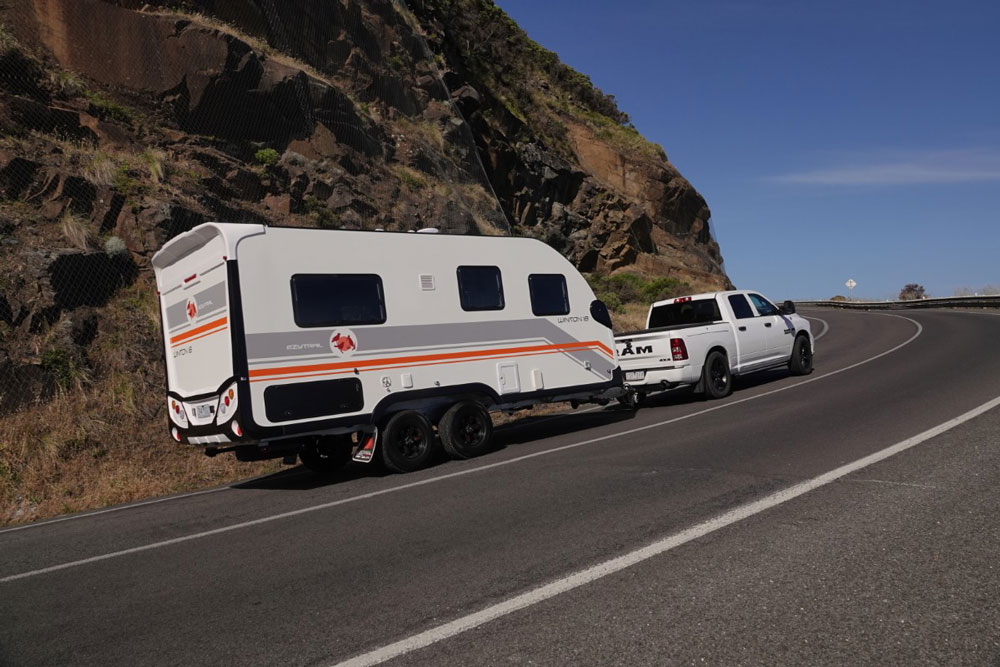
9. Bring levelling blocks in case you have to park on uneven ground.
This is one many new caravanners don't think of, but if you've ever have to spend a night sleeping on an incline, you'll never forget again. Bringing along levelling blocks, chocks, or stabilisers will help make sure your caravan or camper doesn't roll down the hill, and you won't be rolling out of bed in the middle of the night either!
10. Book your campgrounds ahead of time.
It's busy out there, so you will need to plan a route and pre-book accommodation at campsites, including in caravan and holiday parks, National Parks and Reserves.
11. Get familiar with parking rules and other restrictions.
You should also be sure you're aware of the rules surrounding parking. There are many local and State rules regarding parking long vehicles in residential areas. And for God's sake, don’t park in the truck bays at busy truck stops or you may not like the response!
Signage and restrictions will also help you and others around you stay safe. Be very aware of length, height and weight road signage and restrictions, and plan accordingly. Truck routes around towns are often better than cramming small local streets and shopping areas.
11. Travel with cash.
The internet regularly goes down in many rural regions, rendering electronic transactions impossible. Make a quick trip to get some cash for traveling before you hit the road.
12. Don't forget to bring a few creature comforts.
For me, camping is about enjoying the elements. Please give me a bush TV (campfire) under a myriad of stars, a sunrise, sunset, or a misty mountain landscape any day over the garbage we see on the media.
But yes, I’m a bit different from most. Whilst I can see the need for facilities and comfort, especially on long treks, I am also very content rolling out the awning off the roof rack and setting up the trusty swag after a simple dinner cooked in a camp oven on a fire or portable stove. The portable fridge/freezer keeps the essentials cold, and simple solar, an inverter, and twin batteries in the rig keep the essentials charged (computer, cameras, iPad, telephone, etc). Add a folding table and camp chairs transported on the roof racks and that's all I need.
Some to consider:
-
Outdoor Furniture. Absolutely essential for any camper!
-
Portable Bluetooth Speaker. I never leave home without it but remember that much of your music may need to be downloaded before you leave Wi-Fi reception. A great traveling playlist certainly helps with life on the road.
-
Low-power LED Lighting Options. For all of your external and internal needs, including torches for that late-night visit and exploration.
-
Shade. It may be a simple tarpaulin on poles or an elaborate electrically actuated fold-out awning on a caravan with midge mesh screens, but you will need shade!
-
Groundsheet or Camping Mat. These are great for keeping the dirt, dust, sticks, stones and mud away from your defined living area.
-
Cleaning Equipment. Stuff to keep your campsite clean such as brush and broom, bucket and sponge etc.
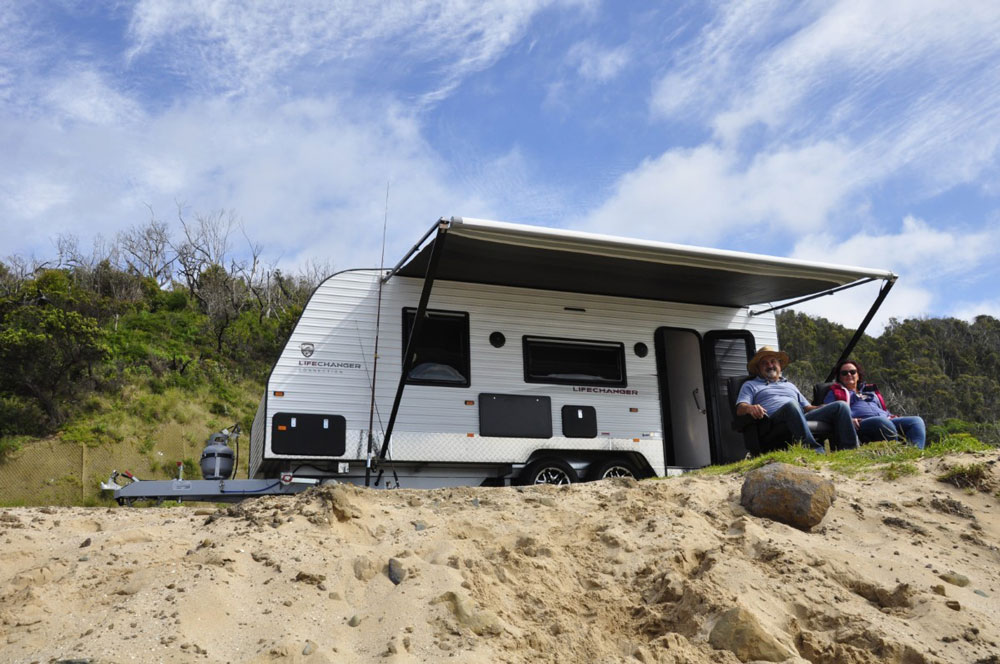
13. Consider a backup generator for power.
Depending on how you plan to travel, a backup generator could come in handy. In simple cases you may find enough power generation through your vehicle alternator. Solar is great when the sun shines but much less so if you'll be camping under a forest canopy. If you know you'll have heavy power requirements, or are just looking for peace of mind, look into getting a backup generator.
14. Do a practice run.
One of the best pieces of advice I can offer is to do a short practice run before heading off on a longer holiday. It's a great chance to test out your abilities so that you can avoid getting yourself into tough (or dangerous!) situations.
Towing, Driving, and Setup
The last place you want to test any of these things for the first time is in heavy traffic or in a busy, confined campsite! Plan some leisurely time behind the wheel, including night driving if that's a concern, and practice setting up your site. Find an empty car park and practice your manoeuvring, particularly getting used to the size, amount of swing, and view from reversing mirrors and camera if fitted. Remember, camp sites and boat ramps have been the cause of many divorces!
Packing Your Personal Items
It's usually easy enough to remember the fun stuff related to your holiday, but there are many practical items that you should also bring, such as:
-
Photo ID. This is usually required in many regions for accommodation (including caravan park entry) and liquor supplies.
-
Health information card. In case of an emergency, you'll want this to provide vital medical and contact details if you're incapacitated.
-
Personal medications. In addition to what's in your first aid kit, be sure you've brought all preventative and reactive medications for your own health conditions. Treating infections is a priority (I always carry antibiotics as I am allergic to penicillin). Insect repellent and treatment, asthma medications, insulin, EpiPen, CPAP and sleep aponia devices, basic antiseptics, pain killers, and dressings are essentials for many travellers.
-
Items for personal hygiene. What you'll need or want will likely vary widely depending on where you'll travel and your personal minimum requirements. But, hygiene is certainly essential to health and an important social consideration given that you'll be in close quarters!
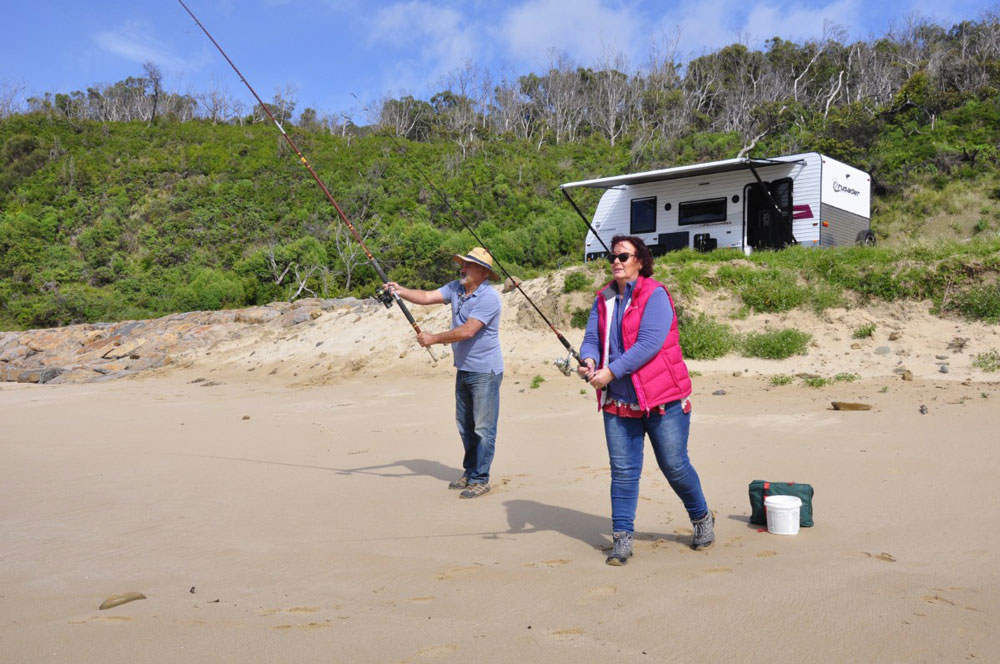
Pre-Travel Checklist
Give that pre-travel checklist a solid practice run and if you haven't made one yet, this is the time! Consider everything you'll need to pack, from those personal items I mentioned above to your caravan pantry essentials. To get the caravan ready, be sure your pre-trip checklist includes servicing and tyre condition/pressure, as well.
When it's time to travel, make sure you're also ready to safely tow your caravan. Before you tow:
-
Inspect everything. Have you double-checked the lock on the towing coupling, secured the jockey wheel, along with inspecting the trailer wiring, breakaway cable, brakes, safety chains and towing lights?
-
Check your gas bottles. Are they full and turned off for towing?
-
Lock down the interior items. Are the fridge, ensuite, cupboards, doors, drawers, aerials, lockers, windows and vents all locked down for towing?
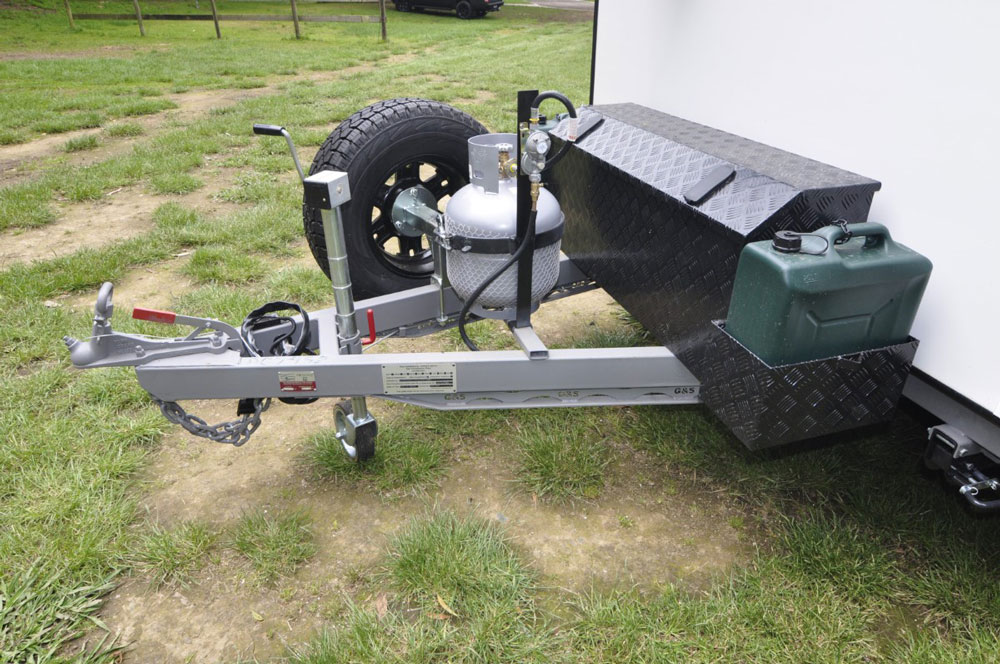
Still Shopping for the Perfect Van?
At Only Vans, we have great deals on caravans for sale including used caravans and caravans from private sellers. You can also find motorhomes for sale, camper trailers, and pop top caravans. No matter how you like to travel, we've got you covered. Caravan finance options are also available. Let's get you in that dream van!
Found your perfect purchase? Let’s make financing just as easy!
Work with Australia’s best-reviewed finance broker for a great deal and a stress-free experience. With 2,500+ glowing Google reviews, you can trust you're in good hands! See what our happy customers say in Credit One reviews, or jump right in and crunch the numbers with our handy loan repayment calculator. Your ideal financing solution is just a few clicks away!

